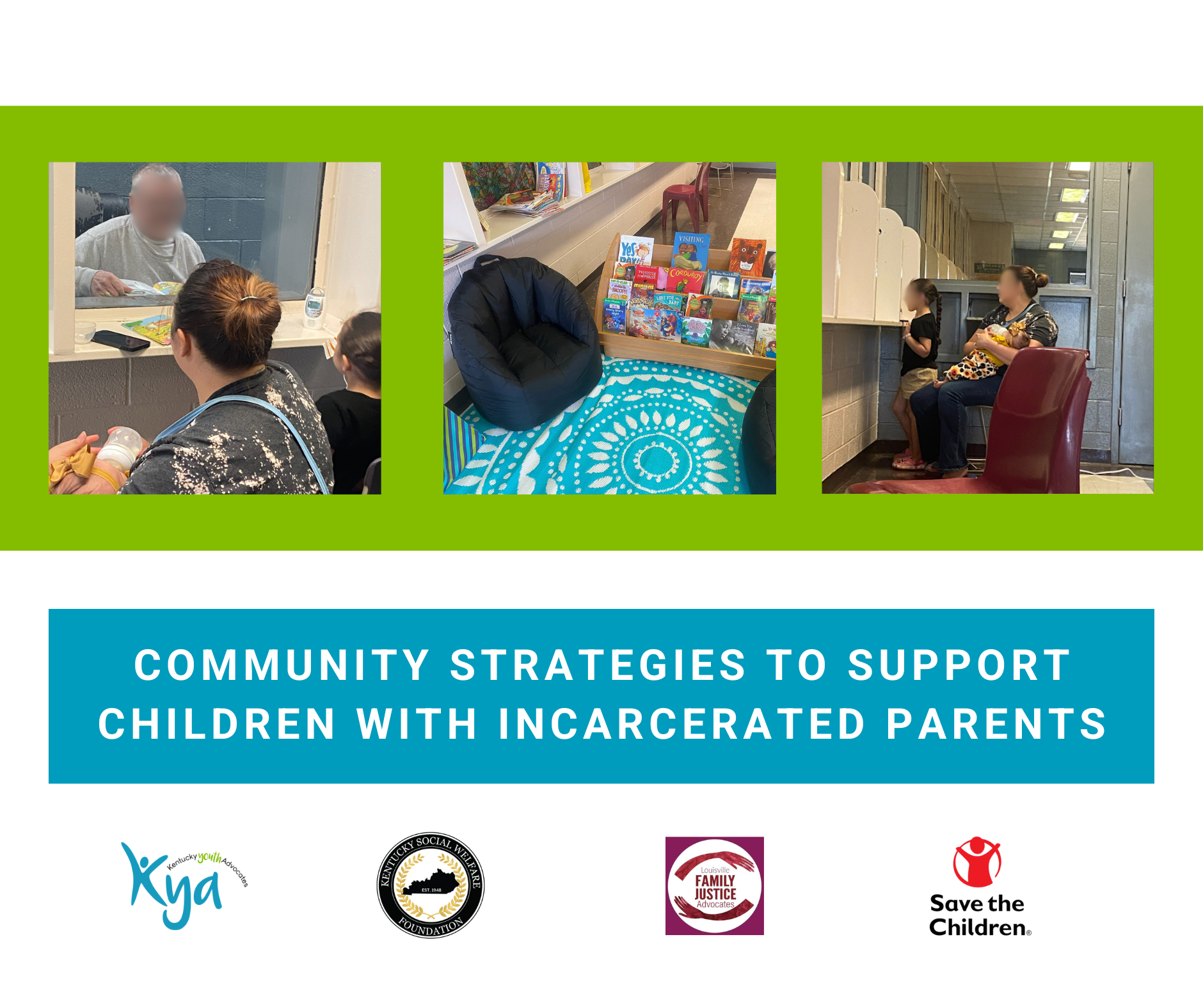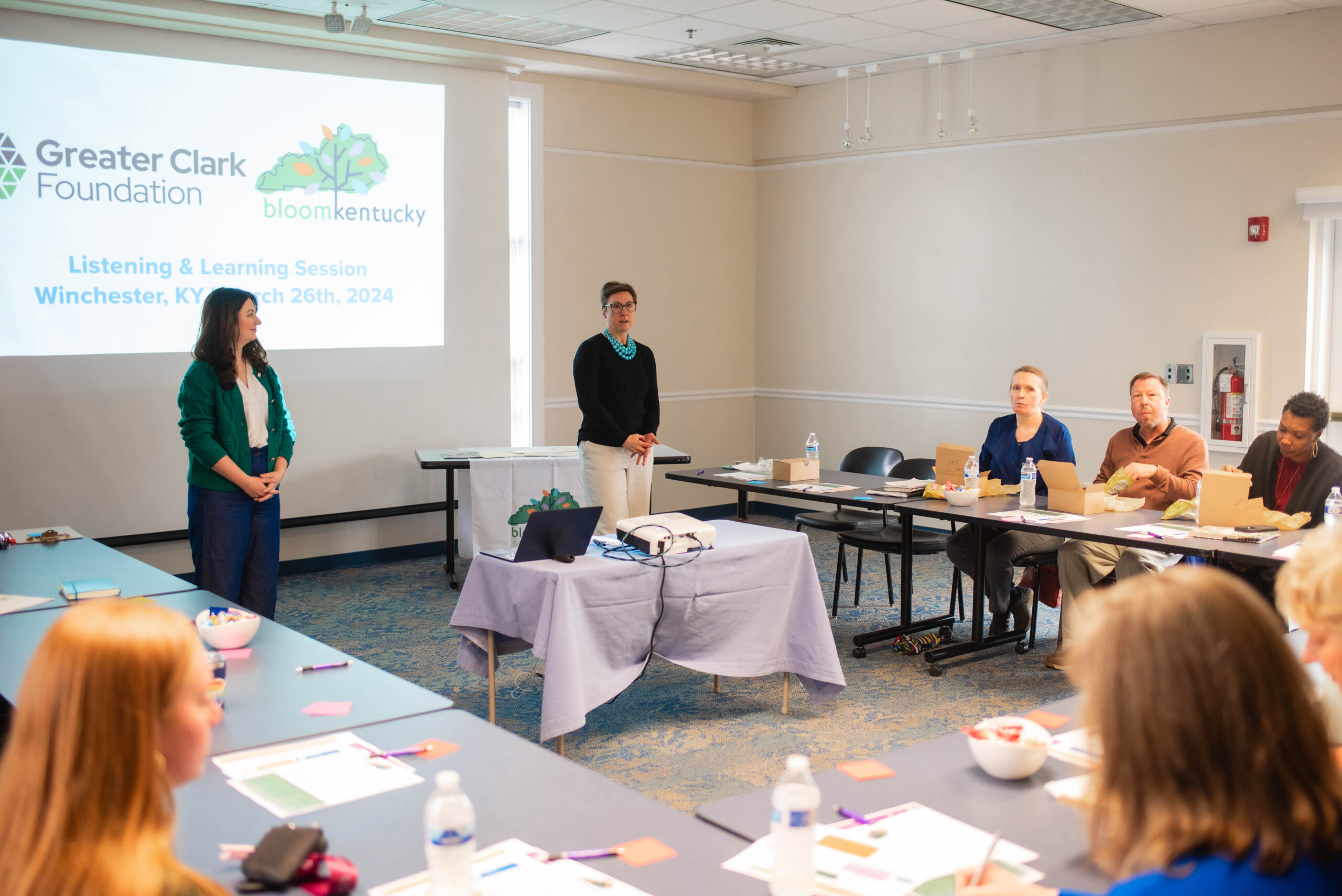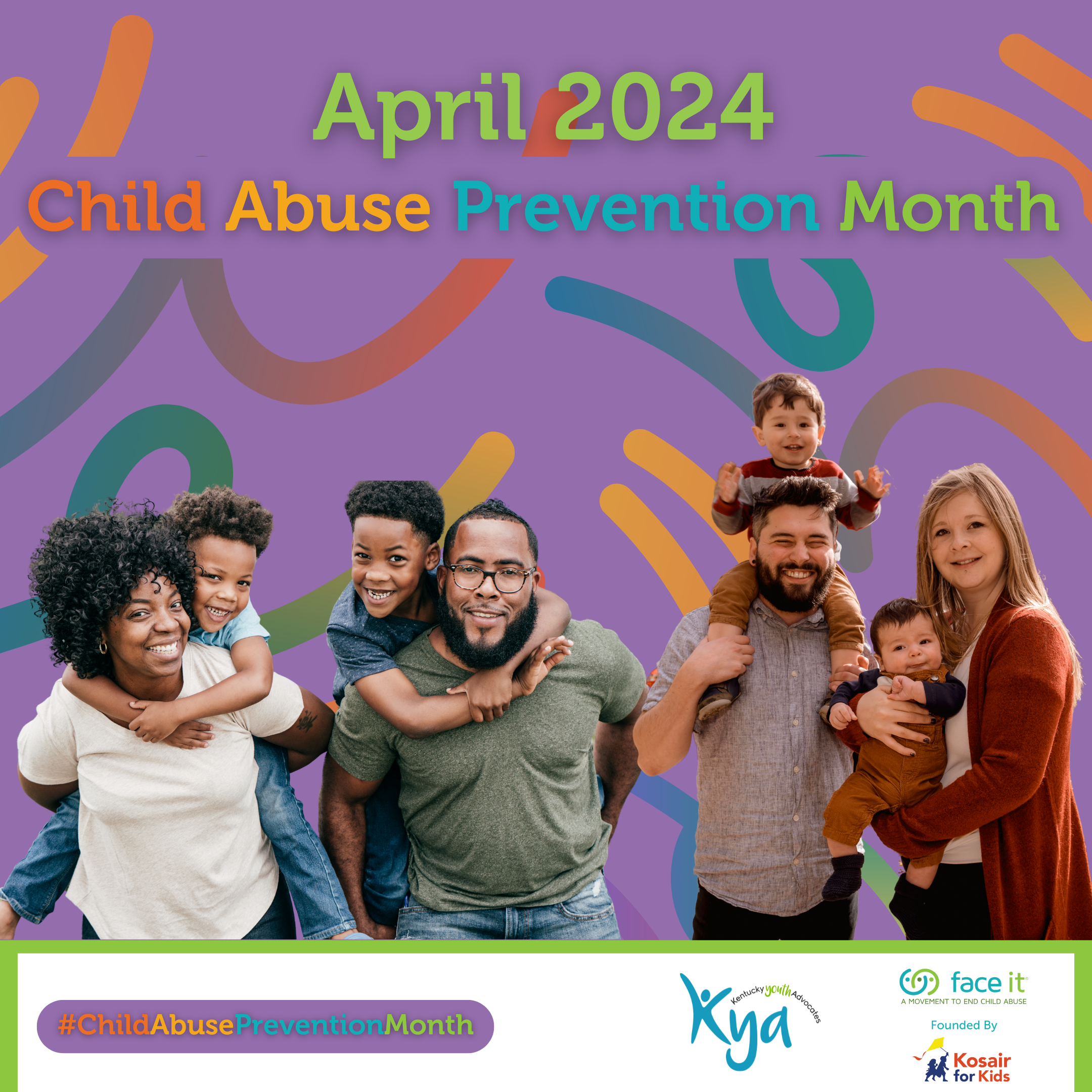 Currently, our state lawmakers are working hard to craft and pass a two-year state budget that would fund the state Cabinets that provide child protection, child care, education, health services, and more. Governor Andy Beshear will present his proposed Executive Branch Budget for the Commonwealth of Kentucky during the Budget Address on Tuesday, January 28th. In the weeks following, the Kentucky House and Senate will work on their version of the budget and resolve differences prior to the session ending in mid-April.
Currently, our state lawmakers are working hard to craft and pass a two-year state budget that would fund the state Cabinets that provide child protection, child care, education, health services, and more. Governor Andy Beshear will present his proposed Executive Branch Budget for the Commonwealth of Kentucky during the Budget Address on Tuesday, January 28th. In the weeks following, the Kentucky House and Senate will work on their version of the budget and resolve differences prior to the session ending in mid-April.
Kentucky kids and families need a strong state budget that maximizes positive impacts over the next two years. Among the many budget priorities, the Blueprint for Kentucky’s Children hopes to see the following priorities included in the 2020 state budget:
Refundable state Earned Income Tax Credit (EITC) to help working families make ends meet
Enacting a refundable state Earned Income Tax Credit (EITC) is a proven way to encourage and reward work while also growing local economies. A state-level EITC at just 15 percent of the federal credit would inject an additional $140 million in local economies and businesses. Earned income tax credits have proven to get people working and provide a fast and positive return on investment. An EITC would help an estimated 442,000 Kentucky children.
Increased funding for the Child Care Assistance Program so parents can rely on safe and affordable child care
The Child Care Assistance Program (CCAP) provides a crucial support to allow parents to work by helping them afford safe and reliable care for their children. Access to child care enables parents to enter and remain in the workforce, which supports broader economic growth for Kentucky. Estimates suggest only 11 percent of eligible children are served by CCAP and over half of Kentuckians live in child care deserts, meaning there are either no licensed child care centers or not enough slots to meet demand. Increased state and federal investments are needed to keep existing child care centers from closing their doors and ensure that working parents have safe and reliable child care options.
Better supports for kinship families that ease the financial burden for grandparents and other relatives raising children
Children do best when they are connected to families. Relatives and close family friends (kinship caregivers) who step up to raise children when their parents cannot are critical to their safety and security. Currently a one-time $350 stipend per child is available to these caregivers, called the Relative Placement Support Benefit, to be used for basic needs like clothing, bedding, or car seats, but is insufficient. Whereas basic DCBS foster parents receive over $600 per month for the care of foster children. Increasing the amount of the stipend to kinship caregivers can be critical in easing the transition for the child. Respite care, a temporary break from the ongoing responsibilities of caregiving, can provide a much-needed opportunity to help caregivers balance caring for the child with caring for themselves. Foster families already receive respite care resources, and Kentucky can offer those same options for safe, affordable respite care to kinship caregivers.
Increased investments in family preservation and substance abuse programs that allow families to stay together safely while achieving sobriety
Programs that keep families safely together are good for Kentucky kids and good for the state budget. The skills and resources parents gain in family preservation programs reduce the need for out-of-home care for their children—programs such as the Kentucky Strengthening Ties and Empowering Parents (K-STEP) and the Sobriety Treatment and Recovery Team (START) programs. Substance abuse is a major factor for over half of children removed from their homes by child protective services due to abuse or neglect, especially infants and toddlers. K-STEP and START programs are proven to help parents achieve sobriety while safely caring for their children.
Expanded Family Recovery Courts, which hold parents accountable while providing supports they need to achieve sobriety and care for their children
Children need their parents to care for them, but they are too often separated due to circumstances beyond their control. In Kentucky, 81,000 children are being raised by grandparents and other relatives outside the foster care system, nearly 10,000 children are in foster care, and 13 percent of children have experienced parental incarceration. Many of these separations are due to parents struggling with addiction. Increased funding for Family Recovery Courts, a voluntary program for parents who are involved with the Department for Community Based Services and the court system, will provide parents with the support they need to achieve sobriety. It also gives them the opportunity to strengthen their parenting skills and reunify or continue to safely care for their children. Given Kentucky’s increase in women locked up for low-level drug offenses and being housed in county jails with limited or no access to substance abuse treatment, expanding substance abuse treatment in the community would be a better intervention for mothers with drug charges and their children.
Incentives to enroll in the Health Access Nurturing Development Services in-home visitation program that provides support to new parents
Kentucky’s Health Access Nurturing Development Services (HANDS) program is a free, voluntary home-visiting program for moms-to-be and first-time parents who would like support and education throughout pregnancy and the first two years of the baby’s life. The HANDS program is provided in every county in Kentucky for first time parents, and in nearly every county for parents who have more than one child. When parents enter the HANDS program early in the pregnancy, the effects are dramatic—increases in adequate prenatal care, lower rates of preterm births and low-weight births, and lowered incidence of child abuse. Kentucky can increase supports for the HANDS program to provide participation incentives in locations where child abuse and neglect case substantiations are high to reach parents who feel overwhelmed and prevent maltreatment from ever occurring.
Increased investments in the Department for Community Based Services workforce so caseworkers can better serve families
In order to respond effectively to families and children in crisis, Department for Community Based Services (DCBS) caseworkers must be skilled and have extensive training. Caseworker turnover impacts child outcomes by taking experienced workers out of the field and slowing down work on a child’s case. The state budget is also impacted, with an estimated cost of at least $13,000 in direct and indirect costs when a caseworker leaves and a new caseworker must be hired and trained.
Expanded access to child abuse forensic services so all children who experience maltreatment can receive the best care
When child abuse or neglect occurs, children need access to the best care in order to recover and heal and for their case to be investigated. The forensic pediatric teams based out of the medical schools in Kentucky, as well as the 15 child advocacy centers across the commonwealth, rely on state funding to provide these critical services for all children who have experienced maltreatment. An increase in funding to support these programs will allow for our most vulnerable children to get access to the services they need.
Comprehensive statewide tobacco prevention and cessation programs to improve the health of Kentucky now and in the future
The commonwealth is seeing more and more middle and high school students using tobacco products due to the popularity of e-cigarettes. Young kids are getting hooked on nicotine an addiction that can last a lifetime and have lasting consequences on healthy development. Comprehensive statewide tobacco prevention and cessation programs are highly effective in reducing youth and adult tobacco use. By increasing the funding level for these programs to $10 million, we will ensure coordinated, comprehensive tobacco prevention and cessation efforts across the state to support tobacco-free policies and tackle social norms, help tobacco users quit, and prevent tobacco use initiation among the general public and special populations, such as youth.
Increased investments in Family Resource and Youth Service Centers, who work with families to remove barriers to student learning
Family Resource and Youth Service Centers (FRYSCs) work to enhance student academic success by making referrals to health and social services based on needs, connecting families to after school child care, training and supporting kinship caregivers, and more. They can be integral in providing tools for families to remove barriers to student learning. While the number of low-income students has increased, the FRYSC per student allocation is inadequate. Kentucky realizes the necessary role FRYSCs play in providing stability and critical resources for students and can increase its investment in FRYSCs to ensure every student has the opportunity to reach their full potential.
Full funding for the safety measures, behavioral health supports, and other services included in the School Safety and Resiliency Act
Kentucky schools are safer when the focus is on connecting students with caring adults, addressing students’ behavioral health needs, and utilizing proven strategies to address other safety measures within school buildings. In 2019, the Kentucky General Assembly demonstrated their commitment to student safety with passage of the School Safety and Resiliency Act. Kentucky can continue progress in improving school safety by providing funding support to ensure effective safety measures, promoting expanded school-based behavioral health services, and investing in supports that focus on student health and well-being.
Increased per-pupil funding (SEEK) to ensure public schools can help all kids learn
As Kentucky looks for what our students need, the primary school funding formula – or SEEK funding – needs to be protected from any budget cuts and investment dollars should be adjusted to keep up with inflation. The many support services that help students achieve need to be funded to avoid creating a negative ripple effect that could keep students from being on track to become successful adults.
Investments in early learning with full-day kindergarten for all school districts
Kentucky only provides funding for half-day kindergarten. While most school districts in Kentucky provide local funding to cover the costs of full-day kindergarten, a handful of public school districts do not. Funding for full-day kindergarten will bring additional SEEK funding to public schools and increase services to students through the redirection of existing funds in local school districts.
Reinvestment of savings from juvenile justice reforms into community services that keep kids on track to succeed
Children who have interacted with the youth justice system, or are at risk of doing so, need adequate supports to ensure they get back on track and become productive members of society. Without funding, programs that can provide mentoring, job readiness, or mental health services to youth and their families are significantly limited. Following the major juvenile justice system reforms in 2013, youth incarceration rates have declined. It’s crucial for the state to ensure that any savings accrued from the closure of youth detention facilities be reinvested into community-based wrap around services for children.
Continuing to fund the Medicaid and KCHIP programs and investments focused on closing the remaining gap in child health coverage
Kentucky has made strides to improve the number of children who have access to receiving health coverage, including through Kentucky Children’s Health Insurance Program (KCHIP) and Medicaid. KCHIP and Medicaid ensure children in low-income families receive access to health coverage that allows them to visit the doctor or dentist to address their physical, behavioral, oral, and vision health needs. While health coverage rates remain high, progress has stagnated; there are still nearly 40,000 youth who need to be enrolled in health insurance. Kentucky can continue to prioritize the Medicaid and KCHIP programs and invest in initiatives focused on closing the remaining gap in coverage. We must ensure children and their family can access preventive services and care when they are sick.
View and download the 2020 State Budget Checklist for Kentucky Kids.






Leave A Comment